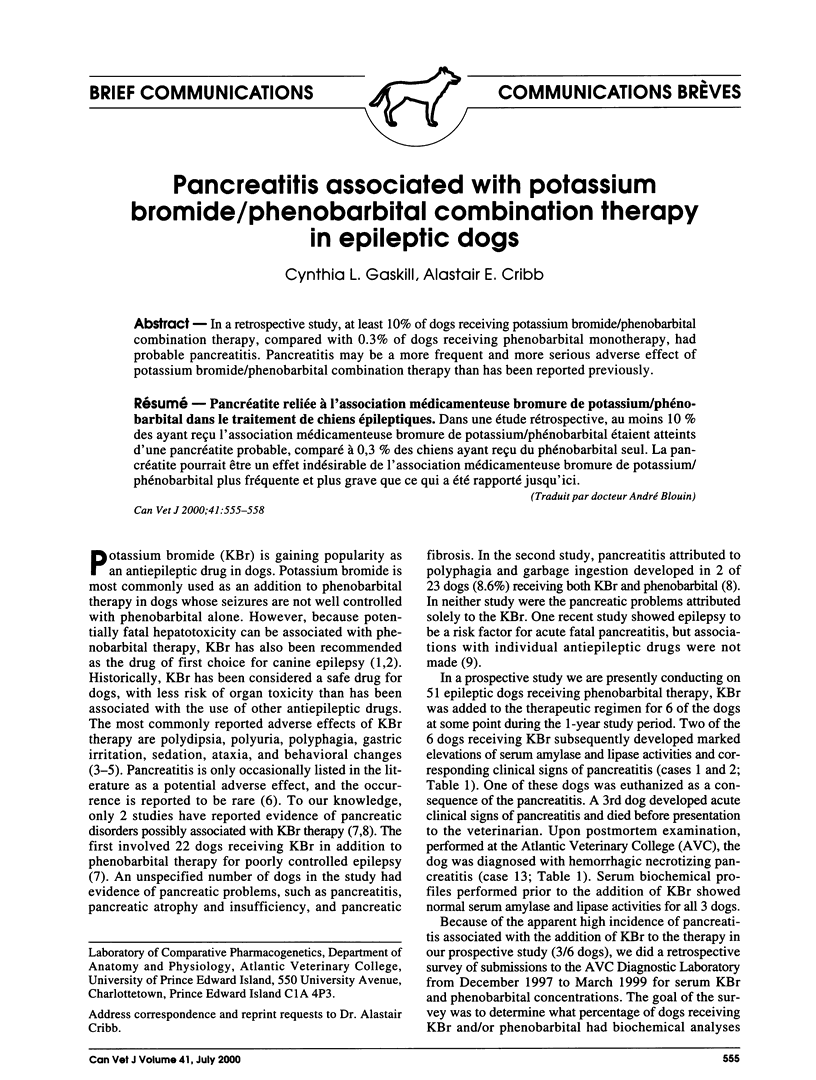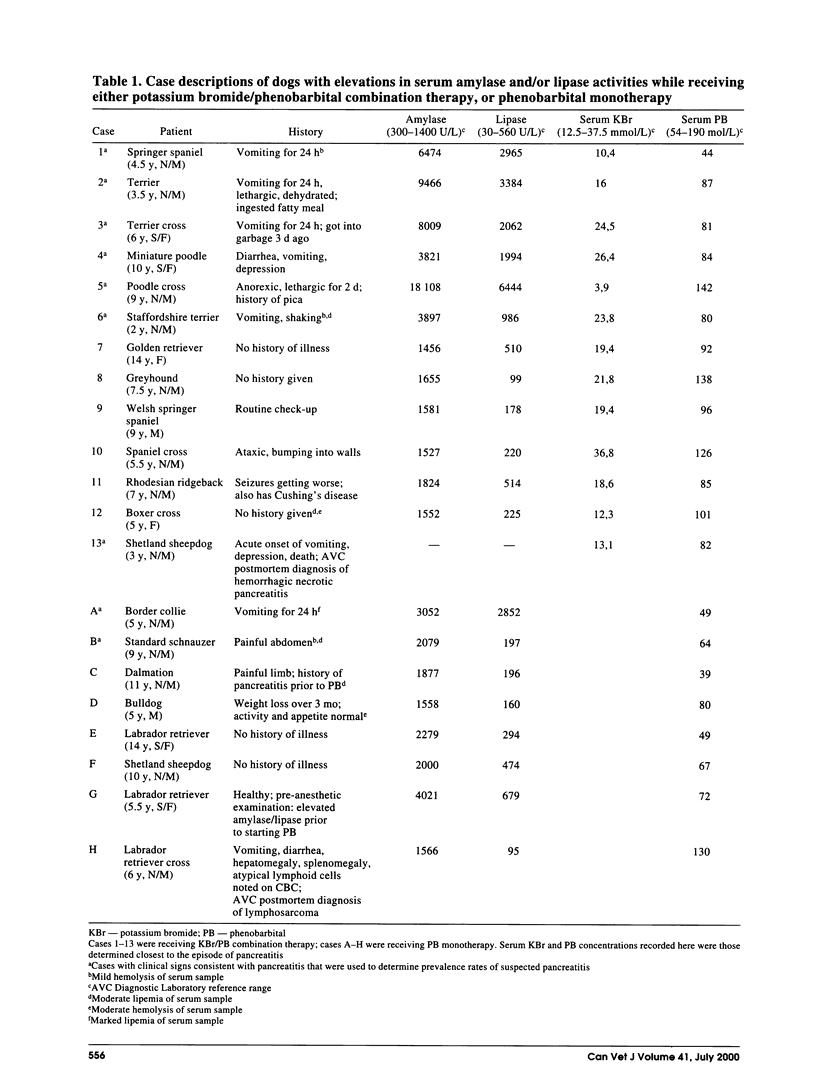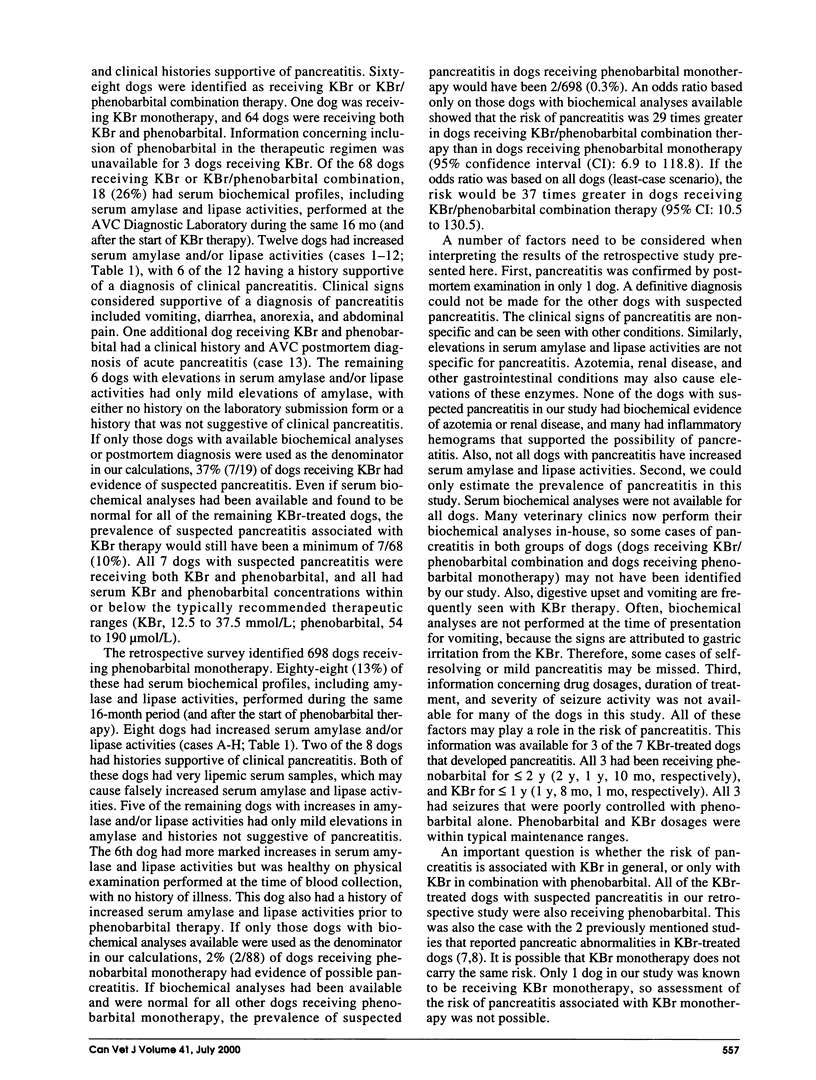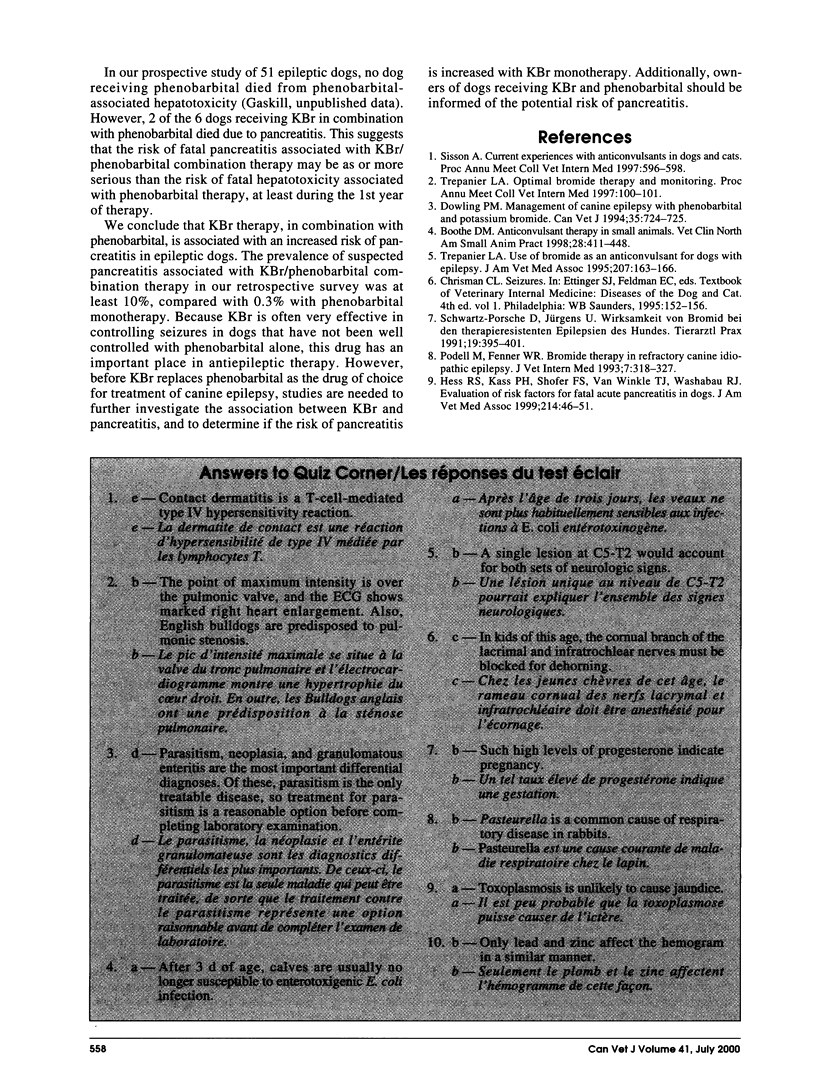Abstract
In a retrospective study, at least 10% of dogs receiving potassium bromide/phenobarbital combination therapy, compared with 0.3% of dogs receiving phenobarbital monotherapy, had probable pancreatitis. Pancreatitis may be a more frequent and more serious adverse effect of potassium bromide/phenobarbital combination therapy than has been reported previously.
Full text
PDF



Selected References
These references are in PubMed. This may not be the complete list of references from this article.
- Boothe D. M. Anticonvulsant therapy in small animals. Vet Clin North Am Small Anim Pract. 1998 Mar;28(2):411–448. doi: 10.1016/s0195-5616(98)82011-1. [DOI] [PubMed] [Google Scholar]
- Dowling P. M. Management of canine epilepsy with phenobarbital and potassium bromide. Can Vet J. 1994 Nov;35(11):724–725. [PMC free article] [PubMed] [Google Scholar]
- Hess R. S., Kass P. H., Shofer F. S., Van Winkle T. J., Washabau R. J. Evaluation of risk factors for fatal acute pancreatitis in dogs. J Am Vet Med Assoc. 1999 Jan 1;214(1):46–51. [PubMed] [Google Scholar]
- Podell M., Fenner W. R. Bromide therapy in refractory canine idiopathic epilepsy. J Vet Intern Med. 1993 Sep-Oct;7(5):318–327. doi: 10.1111/j.1939-1676.1993.tb01025.x. [DOI] [PubMed] [Google Scholar]
- Schwartz-Porsche D., Jürgens U. Wirksamkeit von Bromid bei den therapieresistenten Epilepsien des Hundes. Tierarztl Prax. 1991 Aug;19(4):395–401. [PubMed] [Google Scholar]
- Trepanier L. A. Use of bromide as an anticonvulsant for dogs with epilepsy. J Am Vet Med Assoc. 1995 Jul 15;207(2):163–166. [PubMed] [Google Scholar]


